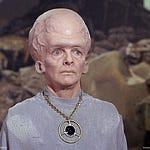Written by Matthew Archer.
In 2008, Charles Murray wrote a short book called Real Education: Four simple truths for bringing America’s schools back to reality. It’s a great read. The four truths in question are: (1) ability varies (2) half of the children are below average (3) too many people are going to college (4) America’s future depends on how we educate the academically gifted. The fourth truth is particularly relevant to my own work on giftedness, of course.
However, I wanted to highlight an important distinction Murray makes early on, one that cuts through many misconceptions around cognitive ability. Here’s Murray:
Educational measures such as test scores and grades tend to make differences among schoolchildren look as though they are ones of degree when in reality some of them are differences in kind.
For those who aren’t familiar with the lingo, a difference of degree is a difference of magnitude, between two things that are otherwise of the same type. The difference between a small dog and a large dog is one of degree. A difference of kind is a difference of type or category. The difference between a dog and a cat is a difference of kind. Murray continues:
For example, a timed math test limited to problems of addition and subtraction, administered to a random cross-section of fourth-graders, yields scores that place children along a continuum distributed in a shape resembling a bell curve. Those scores appropriately reflect differences in degree: some fourth-graders can add and subtract faster and more accurately than others, but they are all doing the same thing and almost all children can be taught to add and subtract to some degree. The same is not true of calculus. If all children were put on a mathematics track that took them through calculus, and then were given a test of calculus problems, the resulting scores would not look like a bell curve. For a large proportion of children, the scores would not be merely low. They would be zero. Grasping calculus requires a certain level of logical-mathematical ability. Children below that level will never learn calculus, no matter how hard they study. It is a difference in kind. Not only that: The child without the logical-mathematical ability to learn calculus cannot do a wide variety of other things in mathematics that are open to the child with the requisite level of logical-mathematical ability.
Murray goes on to make the same point regarding linguistic ability, giving the example of the discussion that high school seniors will be having about Macbeth if they’re at the 90th percentile compared to the 20th percentile. It’s not a difference of a degree.
If you’re reading this with full comprehension, you are, by definition not at the 20th percentile for linguistic ability. You’re almost certainly nowhere near it. As such, it can be incredibly difficult to grasp that other world. In the same way that you will never hear your native language as a foreign language, you will (barring a traumatic brain injury) never be able to inhabit the world of the 20th percentile. In fact, you’d probably have to acquire not only a TBI, but drink half a bottle of vodka to get anywhere close.
What type of education system do you think that lack of accessibility creates? One that asks far too much of those at the bottom who, by no fault of their own, drew the short-straw.
But here’s the depressing part. If you’re not gifted, you also can’t really imagine what it’s like. As with the low-end, we can get a glimpse: faster processing, deeper thought, making connections. But to know what it’s really like? To experience the qualia of immense intellect? That’s not on the menu.
What type of education system do you think this lack of accessibility creates? One that asks far too little of those at the top.
Matthew Archer is the Editor-in-Chief of Aporia Magazine.
Follow us on Twitter for article announcements and general shenanigans.













